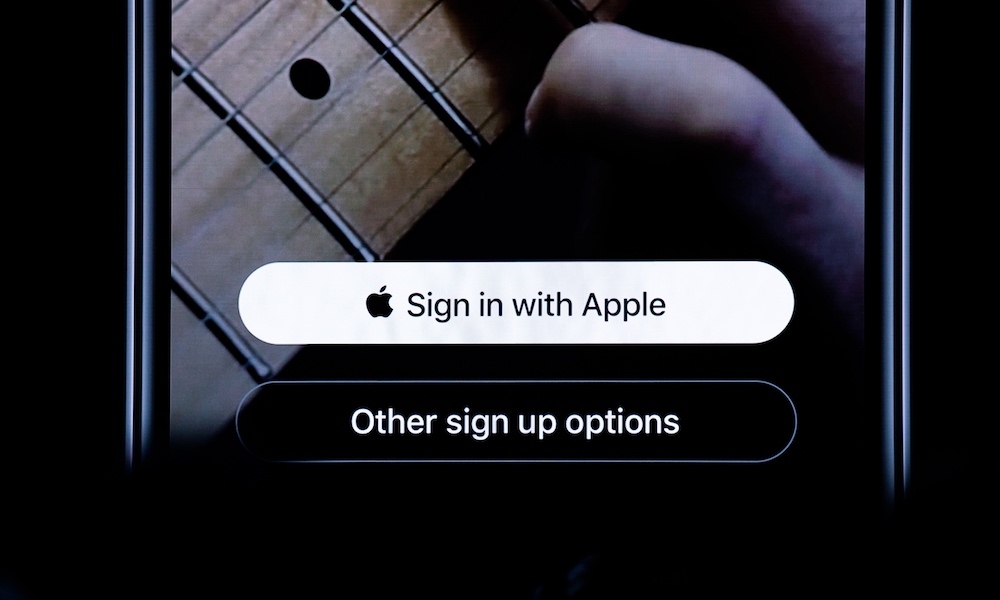Apple Backs Down on Removing ‘Sign in with Apple’ for Epic Games Accounts
 Credit: CNET
Credit: CNET
Toggle Dark Mode
It looks like Apple has reversed course on at least one front in its ongoing feud with Epic Games, although it seems unlikely that this represents any real cessation of hostilities between the two giants.
Yesterday, Epic Games announced that Apple would be shutting down access to Sign in with Apple for Epic’s users, offering up guidance on how users could ensure that their accounts remained accessible after the Apple single-sign-on service stopped working.
While Apple has remained fairly tight-lipped about the whole issue, access to Sign in with Apple was presumed to be linked to Epic’s developer account with Apple, which was terminated back on August 28th in response to Epic’s breach of its developer contract.
Late yesterday, however, Epic reported that Apple appears to have backed down on this latest action, granting Epic an “indefinite extension” to its use of Sign in with Apple.
Despite this, however, Epic is still recommending that users follow the instructions provided in order to make sure they can log into their accounts without using their Apple ID, since the use of the phrase “indefinite extension” suggests that Apple could eventually still pull support — it just hasn’t yet provided a timeline for when it will do so.
What’s Going on Here?
To be clear, use of Sign in with Apple is only available to registered developers to use in conjunction with apps that have been published on the App Store. It therefore stands to reason that it’s in some way tied to an actual developer agreement being in place, and with Epic’s agreement terminated — and all of its apps removed along with it — the removal of Sign in with Apple support may have simply been standard operating procedure; it’s very unlikely that it was a retaliatory move being taken specifically against Epic.
Like most such services, Sign in with Apple requires a certificate to be issued by Apple for security reasons. These certificates need to be renewed every year, and since a developer account is required to use Sign in with Apple, it’s very likely a developer account is also required to request and renew the necessary certificates.
As Sign in with Apple went live around this time last year, it’s entirely possible that Sept. 11th was merely the date that Epic’s certificate was going to expire anyway, and that it would have had no way of renewing that certificate without Apple making some kind of an exception.
Regardless of what the reasons were, however, since it’s otherwise impossible to use Sign in with Apple without a developer account and a published app, it’s clear that Apple actually has made a specific exception for Epic Games in this case.
While part of this is certainly capturing some moral high ground for Apple by showing that it doesn’t want to impact Epic’s end users any more than it absolutely has to, there’s a bit of self-interest on Apple’s part too. Apple has been promoting Sign in with Apple as a service that it wants both developers and users to be able to rely on, and cutting Epic Games — and its users — off so abruptly certainly would harm the trustworthiness of the service.
While other popular single-sign-on services such as Facebook Login and Sign in with Google carry the same potential risks, there have been no cases of either Facebook or Google ever terminating a relationship with a service or developer in a way that would cause these services to break for end users.
If Apple wants developers and users to trust its Sign in with Apple service, it needs to guarantee that it will continue to provide the same level of reliability, regardless of the relationship it may have with the developer behind it.
That said, when asked for comment by The Verge yesterday, Apple insisted that it wasn’t doing anything that would stop Sign in with Apple accounts from working with Epic Games, so the veracity of Epic’s claims that Apple was enforcing a Sept. 11th deadline may be in question. However, if the cutoff was the matter of an expiring certificate that Epic was simply unable to renew without a developer account, it’s entirely possible both parties could technically be telling a narrow version of the truth, in that Apple isn’t actively disabling Sign in with Apple, but it was also passively preventing Epic from continuing to use it.
It remains to be seen what will happen in the longer term when it comes to Epic’s ability to use Sign in with Apple, but the larger battle between Apple and Epic Games isn’t showing any sign of cooling down anytime soon, as Epic continues to push the courts to order Fortnite reinstated as-is, while Apple continues to insist that Fortnite will be welcomed back on the App Store with open arms if Epic removes its rule-violating direct payment system.
So far, the courts have sided with Apple on this issue, stating that Epic has created its own problem, but the final hearing on whether Fortnite will actually be able to return is still scheduled to be held on Sept. 28th, and with both companies continuing to file additional arguments, it’s possible the decision could change. Either way, these are just requests for preliminary injunctions pending the outcome of the larger lawsuit that Epic has filed against Apple over its App Store policies; that case isn’t expected to hit the courts until sometime next year.






